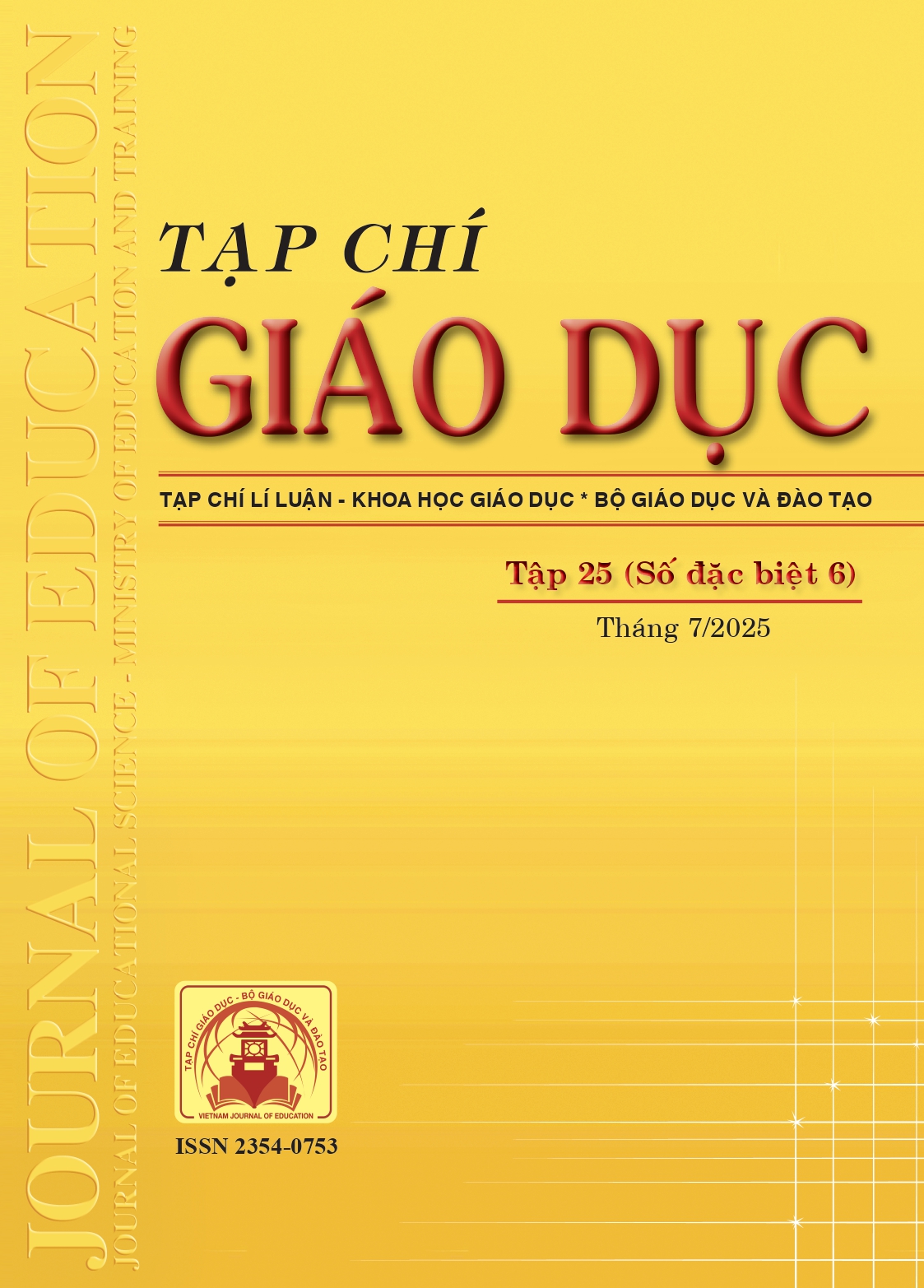Thói quen tham khảo tài liệu khi viết đoạn trên Google Docs và mối tương quan với các biến tố tác động: khảo sát nhóm sinh viên trong học phần “Tiếng Việt thực hành”
Tóm tắt
Although Google Docs is utilized as an effective supporting tool for writing, the issue of undergraduates’ referencing when they write paragraphs at home has been almost unexplored. To shed light into this issue, this survey was conducted on a group of undergraduates (N = 164) in a multidisciplinary university based in the Mekong Delta. A descriptive analysis by using SPSS showed that most of participating students admitted to reference “Occasionally” when writing at home. Enhanced confidence, habitual referencing, easy access to referential resources and strong desire for higher grades are four positive correlational factors for more frequent referencing among undergraduates. This study suggests solutions for both instructors, managers and undergraduates to better support undergraduates in writing and emphasizes prevention and detection of students’ copying to assure an academic integrity environment.
Tài liệu tham khảo
Bailey, S. (2014). Academic writing: A handbook for international students. Routledge. https://doi.org/10.4324/9781315768960
Bandura, A. (1986). Social Foundations of Thought and Action: A Social Cognitive Theory. Prentice Hall.
Bộ GD-ĐT (2022). Thông tư số 09/2022/TT-BGDĐT ngày 06/6/2022 quy định Danh mục thống kê ngành đào tạo của giáo dục đại học.
Bùi Minh Toán, Lê A, Đỗ Việt Hùng (2003). Tiếng Việt thực hành. NXB Giáo dục.
Đặng Hùng Vũ, Nguyễn Thành Long (2020). Đánh giá liêm chính học thuật của sinh viên qua nhận thức của sinh viên về môi trường học thuật và hành vi không trung thực học thuật. Tạp chí Khoa học, Trường Đại học Mở Thành phố Hồ Chí Minh, 16(1), 46-63. https://doi.org/10.46223/HCMCOUJS.econ.vi.16.1.1389.2021
Fitzgerald, J., & Shanahan, T. (2000). Reading and writing relations and their development. Educational Psychologist, 35(1), 39-50. https://doi.org/10.1207/s15326985ep3501_5
Fricker, R. D. (2008). Sampling methods for web and e-mail surveys. The SAGE handbook of online research methods. London: SAGE Publications Ltd. https://doi.org/10.4135/9781473957992
Graham, S., Liu, X., Bartlett, B., Ng, C., Harris, K. R., Aitken, A., Barkel, A., Kavanaugh, C., & Talukdar, J. (2018). Reading for writing: A meta-analysis of the impact of reading interventions on writing. Review of Educational Research, 88(2), 243-284. https://doi.org/10.3102/0034654317746927
Hattie, J., & Timperley, H. (2007). The power of feedback. Review of Educational Research, 77(1), 81-112.
Hoàng Thị Thu Hà, Đặng Khánh Linh, Nguyễn Thu Hà, Nguyễn Ngọc Lan, Tô Thảo Hương, Phạm Xuân Thiện (2024). Các nhân tố tác động đến “Liêm chính học thuật” của sinh viên đại học trong bối cảnh phát triển trí tuệ nhân tạo. Tạp chí Giáo dục, 24(10), 47-52. https://tcgd.tapchigiaoduc.edu.vn/index.php/tapchi/article/view/1870
Kornbrot, D. (2014). Point biserial correlation. Wiley StatsRef: Statistics Reference Online. https://doi.org/10.1002/9781118445112.stat06227
Lea, M. R., & Street, B. V. (1998). Student writing in higher education: An academic literacies approach. Studies in Higher Education, 23(2), 157-172. https://doi.org/10.1080/03075079812331380364
Lee, S. J. C., & Abdul Rabu, S. N. (2022). Google Docs for higher education: Evaluating online interaction and reflective writing using content analysis approach. Education and Information Technologies, 27(3), 3651-3681. https://doi.org/10.1007/s10639-021-10760-4
Nguyễn Thái Bảo (2024). Sử dụng Google Docs để tăng cường phương pháp học viết phối hợp cho sinh viên chuyên ngành Ngôn ngữ Anh tại Trường Đại học Khánh Hòa. Tạp chí Thiết bị Giáo dục, 2(313), 88-90. https://vjol.info.vn/index.php/tctbgd/article/view/98023
Nguyễn Thành Thi (chủ biên), Nguyễn Thành Ngọc Bảo, Trần Lê Duy, Dương Thị Hồng Hiếu, Phạm Ngọc Lan, Tăng Thị Tuyết Mai, Đinh Phan Cẩm Vân (2022). Ngữ văn 10, tập một, Chân trời sáng tạo. NXB Giáo dục Việt Nam.
Nunan, D. (2003). Practical English language teaching. McGraw-Hill.
Oshima, A., & Hogue, A. (2006). Writing Academic English (4 ed.). Pearson Longman.
Pajares, F. (2003). Self-efficacy beliefs, motivation, and achievement in writing: A review of the literature. Reading & Writing Quarterly, 19(2), 139-158. https://doi.org/10.1080/10573560308222
Park, C. (2017). In other (people's) words: plagiarism by university students—literature and lessons. Academic ethics, 525-542. https://doi.org/10.1080/02602930301677
Plagiarism Detector. (2025). Plagiarism Checker. https://plagiarismdetector.net/
Quốc hội (2012). Luật Giáo dục đại học. Luật số 08/2012/QH13, ban hành ngày 18/6/2012.
Savage, A., & Shafiei, M. (2007). Effective Academic Writing: The Paragraph. Oxford University Press.
Thủ tướng Chính phủ (2022). Quyết định số 131/QĐ-TTg ngày 25/01/2022 phê duyệt Đề án “Tăng cường ứng dụng công nghệ thông tin và chuyển đổi số trong giáo dục và đào tạo giai đoạn 2022 - 2025, định hướng đến năm 2030”. https://chinhphu.vn/?pageid=27160&docid=205236
Đã Xuất bản
Cách trích dẫn
Số
Chuyên mục
Giấy phép

Tác phẩm này được cấp phép theo Ghi nhận tác giả của Creative Commons Giấy phép quốc tế 4.0 .












